On April 7th, 2022, the Subcommittee on Civil Rights and Civil Liberties (under the House Oversight Committee) held a hearing to learn from those affected by the enormous wave of book bans and challenges. The American Library Association reported this week (also National Library Week!) that 1597 individual books were challenged or banned in 2021.” Representative Jamie Raskin (D-MD) serves as the committee’s chairman, and the minority (GOP) chairperson for this hearing was Representative Nancy Mace (R-SC).
The hearing was split into two parts: part one for students and part two for everyone else. The “everyone else” included a teacher, a librarian, a parent, an author, and a college professor. The first four usually overlapped, with the parent also being a former educator and the teacher being a mother of two children. The congressional committee members’ questioned the adults in part two but not the students in part one.
While the committee did hear one person on academic censorship (the professor), this needed (and has had) a whole separate committee hearing. Not only is the structure of higher education completely different, but there was only one speaker, Jonathan W. Pidluzny, brought forth. He was the only minority (Republican) witness and was out of place during the questioning. Because of this, I’m focusing on the K through 12 testimony, questions, and responses that make up the bulk of the hearing.
Panel One: Students
Three public school students (one from Washington and the others from Pennsylvania) were the first to give testimony. Shreya Mehta, a Washinton state senior, explained that book bans result in a culture of fear.
“Support that fact that it’s not politicians, but librarians and educators in partnership with the students they serve who are best suited and trained to cultivate a collection of books that are age-appropriate and serve their diverse student body. Please make this the last generation of marginalized youth that has to grow up and feel invisible and ashamed of themselves.”
Two senior student leaders from the Panter Anti-Racist Union, Olivia Pituch and Christina Ellis, recounted how they and other students gathered to organize after the York Dispatch covered the mass book challenges in Central York District. They realized the “divide resources” banned mostly consisted of stories about people of color and the LGBT+ community.
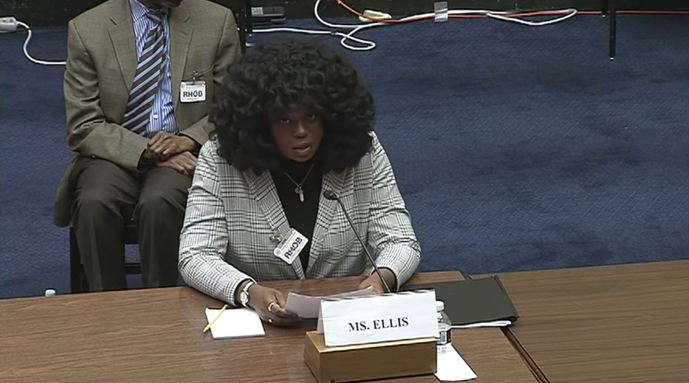
Pituch spoke to the need to be seen and that if she had greater access to LGBT+ books, she might have not felt so alone. Later, Ellis shared the microaggressions and racism she faced throughout her schooling as one of the few Black students.
A slide show at the beginning of the year telling students to ‘be kind’ is not enough.
Panel Two: Educators and parents’ opening statements
Librarian Samantha Hull of Pennsylvania noted that many young people with mental health concerns feel like they don’t belong and that diverse materials in classrooms and libraries can help. “If a student reacts strongly to a book, it can be the start of a conversation with their family or trusted adult about the topic that caused the reaction.”
She pointed out that the publishing industries reflect the wide issues youth face today, emboldening them to speak up for themselves. While she said the library is a safe space, “feeling safe isn’t always the same as feeling uncomfortable. Growth doesn’t necessarily happen when we’re comfortable.” She closed with the importance of access to information and conversation as a cornerstone of democracy.
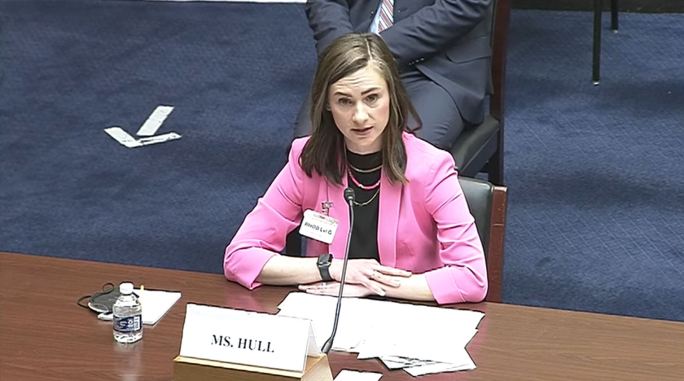
A high school teacher (of English and Women & Gender Studies) and mom, Jessica Berg of Virginia, began by explaining the political rhetoric and threats on top of the underpaid and overworked profession of being a teacher had her contemplating leaving the profession last December. Berg ended by saying that some have spoiled the parent-teacher relationship due to political divisiveness and that they don’t come in for a meeting with teachers. “They go straight to the school boards and yell.”
Berg shared excerpts of notes from students through the year and explained that the reoccurring theme was thankfulness for feeling like their voices matter and they have the power to stand up for what they believe in.
[Political pundits] don’t want everyone to feel like they have a voice. The status quo is predicated on silence. Not only is banning these stories and censoring history preventing students from being able to find their voice, but it is negatively affecting my ability as an educator to connect with my students in a meaningful way. […] What divides us as humans is infitesibale to what unites us, but these are the books you’re banning.
The parent witness, Mindy Freeman, introduced herself as a former educator, someone whose been registered as both a Republican and Democrat in her life, and a mom of a trans teenager. She explained that they raised her daughter to follow her interest regardless of gender but that after a 4th-grade lesson on puberty, they needed to start to educate themselves as a family.
I want to be clear, if there is one soundbite to arise from my appearance here today let it be this one. No book made my child become transgender anymore than a book could turned her eyes from brown to blue.
After Freeman reached out, her daughter’s teacher recommended they read the award-winning (consistently banned) book Melissa by Alex Gino (then named George.) Freeman spoke about the value to her as a parent, her child, and her child’s peers to understand this experience with age-appropriate LGBTQ+ literature accessible books on the shelves.
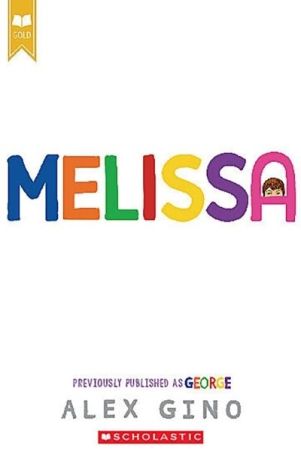
Ruby Bridges
One of the youngest faces of the Civil Rights movements, Ruby Bridges, is best known for being the first child to desegregate Louisana public schools. Her stories have been memorialized in film, books, paintings, and many other mediums. Her 2009 elementary-school-aged biographical book Ruby Bridges Goes to School: My True Story is under review and banned in several districts across the country. Right-wing activist group Moms for Liberty argue the book makes white children “uncomfortable.”
Bridges noted that she gets letters from people of all races thanking her for telling her story and that history must be told—even the uncomfortable parts. Bridges’ novel was one of many targeted in the unwarranted backlash after the Black Lives Matter summer of 2020.
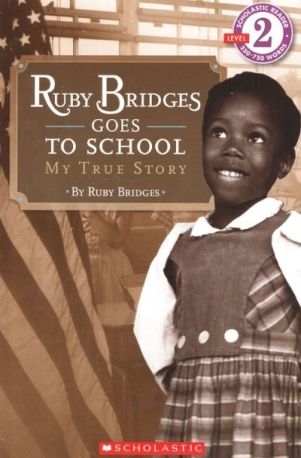
Questioning
Republicans
Republicans Byron Donalds (FL) and Mace used their time to ask (almost exclusively) yes or no questions to Hull, Berg, and Freeman. Representative Donalds asked about who approves curriculum and purchasing in their states before ending by saying taxpayers should decide regardless of librarian expertise. After allowing Donalds to speak over time, Chairman Raskin noted that Supreme Court Case U.S. v. Pico (a case that ended on a plurality) said boards couldn’t remove books over a disagreement on ideas.
Representative Mace tried to downplay the censorship by pointing to public libraries (which also face censorship) and stores. When questioned, Hull pushed back by bringing up accessibility, particularly in transportation and the income of students. Hull noted that some kids don’t feel safe reading at home or in classrooms. Most of the other questions by Mace and then (all) by Jim Jordan weren’t related to the conversation.
Democrats
Representative Wasserman Schultz (D-FL) began by noting the spike in antisemitism and anti LGBTQ+ sentiment before reading from Spielgman’s Maus. Representative Schultz asked Berg about how a copy-cat “Don’t Say Gay” bill would affect her ability to teach. Berg explained that students “see the writing on the wall,” and one student said, “I’d rather kill myself than not be who I am.” Berg continued, “That is absolutely affecting me as a teacher because I carry that with me.”
Representative Rashida Tlaib (D-MI) did not use her time to question the guests but instead gave personal stories (of her and her son) on how seeing yourself reflected in stories holds real-world effects. When Representative Eleanor Holmes Norton (D-DC) asked how long each complaint and/or book challenge takes to resolve, Hull noted that it took 10 – 30 hours (my calculations based on her worst and best scenario) per book. Berg said as a teacher, she has to take these meetings out of contract time (before or after school) or during the planning block she normally uses for grading and lesson planning.
Conclusion
Overall, half of the Republican questions were either unrelated or downplayed the severity of this issue. While many questions from Democrats did include softball questions or no questions (Tlaib), more insight was given. I’ve been covering this for months and have watched hours of teachers discussing how frustrated they are on TikTok and more. Still, there was a lot to be gained from hearing the stories of these people —especially the educators.
If you want to watch the hearing, it’s on YouTube. It’s not as silly as one featuring Ted Cruz or any other of the normal clowns, however, there is still a lot to learn. This is likely already happening in your neighborhood regardless of how they vote.
(image: Alyssa Shotwell)
Want more stories like this? Become a subscriber and support the site!
—The Mary Sue has a strict comment policy that forbids, but is not limited to, personal insults toward anyone, hate speech, and trolling.—



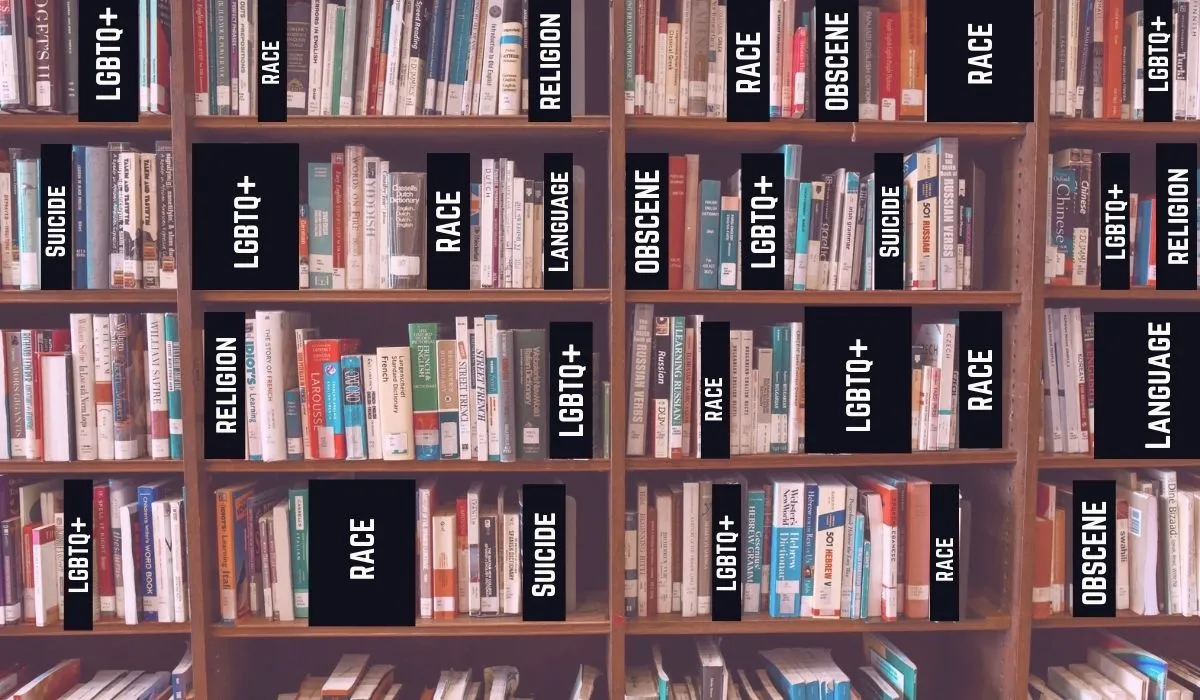

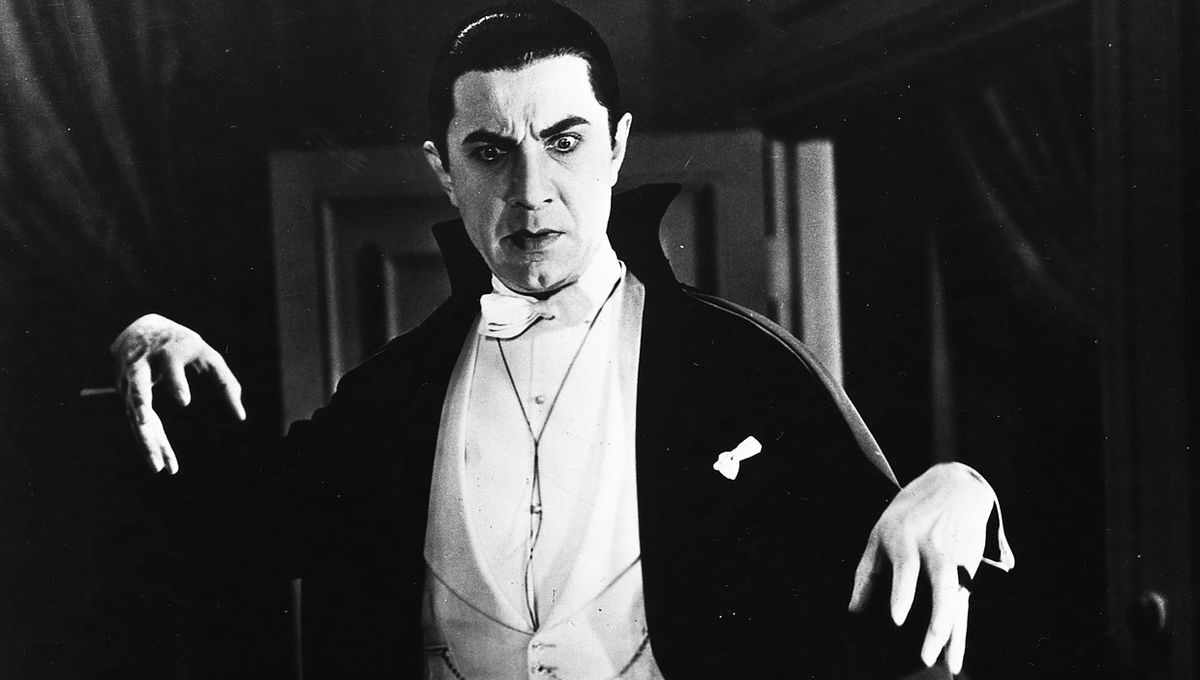




Published: Apr 8, 2022 02:28 pm